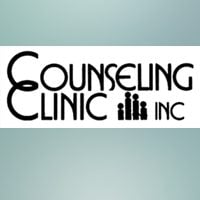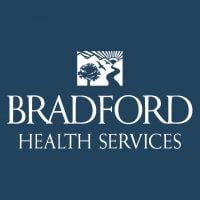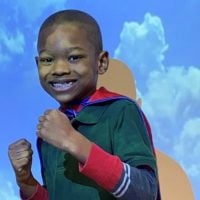Dayspring of Arkansas
Drug Rehab Center in Hot Springs National Park, Arkansas
Dayspring of Arkansas is an addiction treatment center providing tailored programs and evidence-based and holistic treatments for mental health and substance abuse issues, accredited by CARF and providing specialized services for LGBTQ+ individuals, youth, and adults over 40.
Multiple patients have reported Dayspring of Arkansas as permanently closed.
Research other rehabs in Hot Springs National Park, Arkansas, or get help finding an open facility.
About Dayspring of Arkansas in Arkansas
Dayspring of Arkansas is an addiction treatment center located in Hot Springs National Park, Arkansas. This substance abuse and behavioral health treatment center offers tailored treatment plans to adult individuals navigating mental health and substance abuse issues. The facility is licensed by the Arkansas Department of Health and accredited by the Commission on Accreditation of Rehabilitation Facilities (CARF).
Dayspring of Arkansas provides a range of evidence-based and holistic treatments to fit the needs of their patients. Their programs include a full spectrum of addiction treatment services such as individual and group counseling, cognitive behavioral therapy, dialectical behavior therapy, relapse prevention, anger management and more. They also utilize holistic treatments such as yoga, mindfulness training and meditation to help bring balance to mind, body and spirit.
In addition to their quality treatment services, Dayspring of Arkansas also offers specialized services to meet the needs of various demographics. This includes LGBTQ+ and youth services, as well as a unique program for adults over the age of 40. They also provide access to a wide array of recovery resources, ranging from 12 step meetings to alumni activities. Their alumni network ensures that patients have the support they need long after they have left the facility.
Genders
Ages
Modality
Additional
Conditions and Issues Treated
Levels of Care Offered
This center offers a variety of custom treatment tailored to individual recovery. Currently available are Dual-Diagnosis, Outpatient, with additional therapies available as listed below.
“Outpatient treatment is ideal for those who have a lower intensity addiction. It’s also suitable for those with a supportive environment and those on a tight budget.
Outpatient treatment can be considered the lowest intensity level of addiction treatment. It is ideal for early phase addiction or lower intensity addictions. It may involve weekly sessions instead of daily. Peer group support, 12-step programs, and individual counseling may still be used and anti-addiction medication.
Therapies & Programs
No single treatment works for all addicts; therefore, the goal of treatment and therapy should be to find what works best for each individual. Some people requiring addiction treatment may only need a few weeks of inpatient care. Others will require long-term residential care. Tolerance and withdrawal levels vary from person to person and thus affect the intensity of the treatment needed.
If an individualized approach to treatment and therapy is not offered, addicts may fail to reap benefits from their efforts. Professionals must customize plans according to their patient’s needs, limitations, and strengths. The goal of all forms of addiction treatment should be for addicts to find healthy ways to cope with their addiction and its underlying causes.
Couples therapy for drug addiction is a unique form of therapy that allows family members to work through the emotional issues of their loved one’s addiction together. Family members can support each other while learning how to cope with the addiction and encourage healthy changes.
Accordingly, couples therapy for drug addiction is designed for an addict and their significant other or spouse. The two will work with a therapist to learn how the addiction affects themselves and the relationship and how to break the negative patterns of behavior that may have developed.
Drug addiction can destroy a person’s life, as well as their family and friends. The loss of one’s ability to choose how to live and behave often leads the addict into depression, anger, guilt, and many emotional problems.
The therapies usually include siblings, children, and parents who are involved in their daily lives. These sessions are vital because they address past issues that may have hampered an addict’s or alcoholic’s recovery and provide support at a crucial time!
One of the most critical aspects of family therapy is helping addicts’ loved ones see their situation in a new light. It’s also one of the most challenging things a family can do when a loved one struggles with addiction or alcoholism.
Group therapy is held in a safe, controlled setting where patients can feel comfortable sharing their struggles and gaining perspective through shared conversations. It takes place in a group rather than one on one to prevent feelings of isolation or being unique in their situation while creating an environment for addicts at Dayspring of Arkansas to develop fellowship, accountability, and support. Group therapy is an important tool in recovery that prevents cravings that prompt a return to active addiction.
This type of therapy involves the use of a variety of therapeutic techniques to help addicts recover from past traumas that might have triggered their substance abuse. During these sessions, therapists will work with the addict to address painful memories and learn how to cope effectively with stressors as they arise.
During these types of sessions, therapists will typically focus on three main goals:
- Identifying and expressing painful emotions associated with past traumas.
- Reducing the effects of stress on an addict’s life by developing more effective coping mechanisms.
- Developing healthy ways of thinking about stressful situations that can help addicts avoid substance abuse issues in the future.
This type of therapy is typically used in conjunction with other types of addiction treatment services. By identifying and dealing with the root cause of addiction, most addicts can overcome their cravings and prevent relapse once they leave rehab.
Many different types of addiction treatment services exist to help addicts safely get sober, but it’s important for recovering individuals to find a therapist or support group that will help them address the root cause of their addiction.
Cognitive-behavioral therapy is a talking-based method that helps people struggling with addiction replace destructive behaviors with healthier ones. CBT also helps them identify the underlying thoughts and beliefs that cause these behaviors in the first place and ways to control those thoughts and feelings. It can be administered as a holistic therapy or as part of combination therapy and—as opposed to turning to drugs and alcohol—helps addicts learn how to respond to negative thoughts instead.
Patient Experience
Experiential Therapy at Dayspring of Arkansas
Experiential Therapy is used by drug treatment facilities to treat substance abuse. This treatment is clinically proven to help addicts in detoxification by allowing them to release emotions in a safe environment. The treatment process involves addicts painting their feelings and releasing them on a canvas.
One of the most popular forms of experiential therapy is known as LPE – Love, Peace, and Equilibrium. Amy Gumowitz developed this treatment in 1992. By implementing her philosophy of “reality therapy” into the treatment, Gumowitz’s results were outstanding. Once her success was validated by those she had been helping, she decided to open her treatment center. Although Gumowitz passed away in 2007, her contribution to the addiction recovery remains effective, and better yet, it is 100% self-sufficient.
Payment Options Accepted
For specific insurance or payment methods please contact us.
Is your insurance accepted?
Ask an expert, call (888) 674-0062
Additional Details
Specifics, location, and helpful extra information.
Hot Springs National Park, Arkansas 71901 Phone Number(501) 609-0400 Meta DetailsUpdated November 25, 2023
Staff Verified
Dayspring of Arkansas Patient Reviews
There are no reviews yet. Be the first one to write one.
Hot Springs National Park, Arkansas Addiction Information
Arkansas has one of the highest rates of substance abuse and addiction in the nation for drug overdoses. Methamphetamines and prescription opioids are by far the most widely abused drugs in the state. Despite the high rates, Arkansas ranked only 25th in the for drug overdose deaths in 2013.
About 2,213 people struggle with addiction to drugs or alcohol in Hot Springs National Park. This means about 10% of the population is addicted to these substances. The most commonly abused drugs in the state are marijuana, opioids, and methamphetamine. Counseling can provide individuals with tools to cope with triggers and cravings, and medication-assisted treatment uses medication to help alleviate withdrawal symptoms and reduce the risk of relapse.
Treatment in Nearby Cities
- Danville, AR (43.1 mi.)
- Augusta, AR (110.4 mi.)
- Pine Bluff, AR (63.0 mi.)
- Magnolia, AR (85.5 mi.)
- Hardy, AR (154.1 mi.)
Centers near Dayspring of Arkansas
The facility name, logo and brand are the property and registered trademarks of Dayspring of Arkansas, and are being used for identification and informational purposes only. Use of these names, logos and brands shall not imply endorsement. RehabNow.org is not affiliated with or sponsored by Dayspring of Arkansas.








